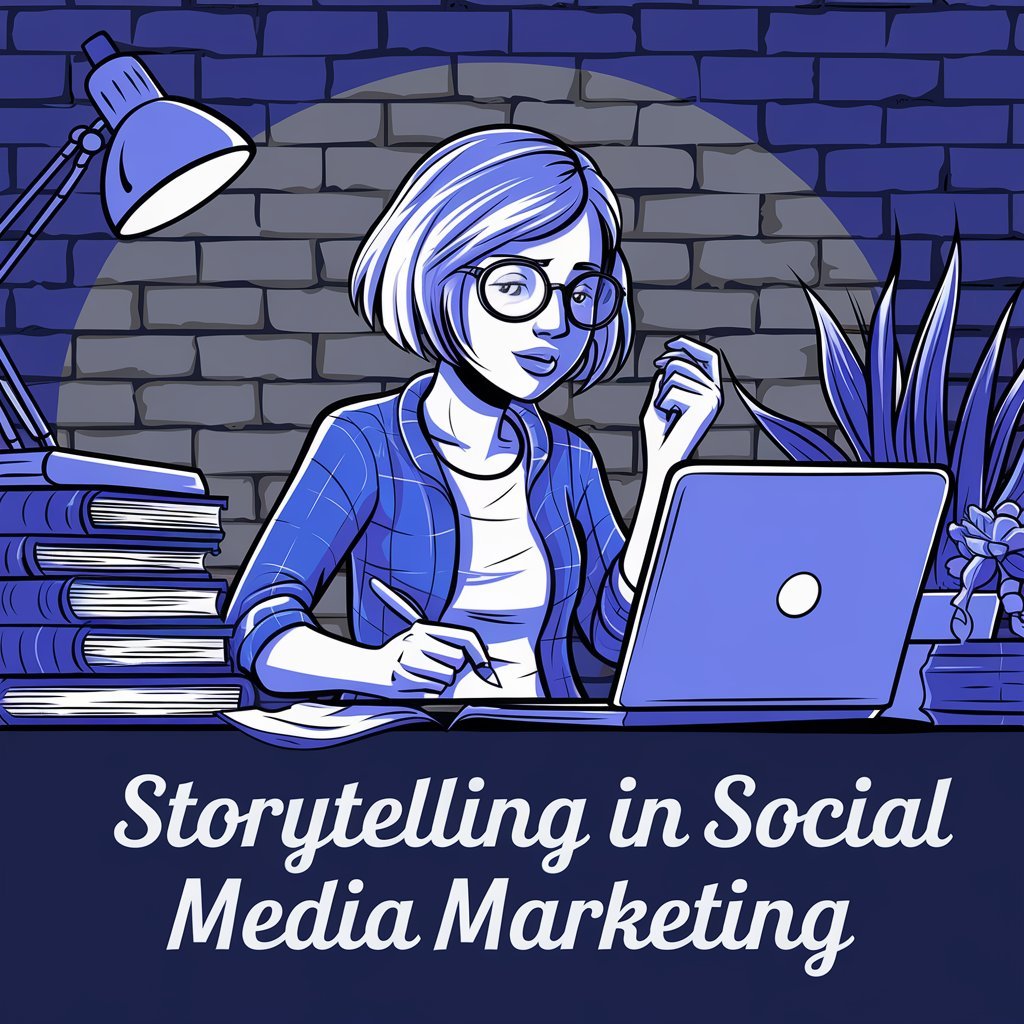
The Role of Storytelling in Social Media Marketing Success
In the fast-paced and visually driven world of social media, capturing and maintaining audience attention is a challenging task. Amidst an overwhelming flood of content, storytelling emerges as one of the most powerful tools in a marketer’s arsenal. More than just a marketing strategy, storytelling is an art that connects brands with audiences on an emotional level, fostering trust, engagement, and loyalty.
The Power of Storytelling in Marketing
Humans are inherently drawn to stories—they have been a fundamental way of communicating, educating, and entertaining since ancient times. Stories have the power to evoke emotions, create empathy, and leave lasting impressions. In social media marketing, this same principle applies. A well-told story can transform a brand from being just a logo into a relatable entity with values, emotions, and a voice.
For example, a brand selling fitness products could simply post images of its equipment, but telling the story of a customer’s transformative fitness journey is far more impactful. Stories give context and meaning to a product or service, making them resonate deeply with the audience.
Why Storytelling Works on Social Media
Emotional Connection: Stories evoke emotions—whether happiness, sadness, excitement, or hope. Emotional engagement is a key driver of social media shares, likes, and comments.
- Memorability: People are more likely to remember a compelling story than a list of product features or facts.
- Humanizes Brands: Storytelling in social media marketing makes brands feel more human, relatable, and approachable.
- Builds Trust and Loyalty: Transparent and authentic storytelling helps build long-term trust with the audience.
- Encourages User Engagement: Audiences are more likely to interact with posts that tell a story rather than just promote a product.
Key Elements of Effective Storytelling in Social Media Marketing
Authenticity: Audiences can easily detect insincerity. Authentic stories that align with a brand’s values foster trust.
- Relatability: The audience should see themselves in the story or be able to relate to the characters and experiences portrayed.
- Clear Narrative Structure: A good story follows a structure—beginning, middle, and end. It should have a conflict, resolution, and a clear message.
- Visual Appeal: Platforms like Instagram, TikTok, and Facebook thrive on visuals. High-quality images, videos, and graphics amplify storytelling.
- Call to Action: Every story should have a purpose—whether it’s to inspire, inform, or drive a specific action.
Successful Examples of Storytelling in Social Media Marketing
Nike: Nike is renowned for its powerful storytelling campaigns. Instead of focusing solely on their products, they share inspiring stories of athletes overcoming challenges, reflecting their core message: “Just Do It.”
Coca-Cola: The brand often tells stories about friendship, happiness, and shared moments, tying these emotional narratives to their product.
Airbnb: Through real stories shared by hosts and travellers, Airbnb creates emotional connections and trust, promoting their platform as more than just a service—it’s an experience.
The Role of Different Social Media Platforms in Storytelling in social media marketing
Instagram & TikTok: Ideal for visual storytelling through short

Effective storytelling transcends mere hard-selling tactics; it facilitates meaningful dialogue. Brands that excel in this domain possess a deep understanding of their audience’s aspirations, fears, and desires, thereby crafting narratives that resonate profoundly. Whether through authentic customer testimonials, behind-the-scenes insights, or inspiring success stories, storytelling serves to humanize brands and enhance their memorability.
Additionally, social media platforms are inherently conducive to storytelling. From concise, engaging reels on Instagram to comprehensive video narratives on YouTube, each platform offers distinct tools that bring stories to life. These narratives can be shared, reshared, commented upon, and even co-created with audiences, thereby enhancing their organic reach and impact.
However, authenticity is paramount. Contemporary audiences are adept at identifying insincerity, and brands that engage in storytelling solely to increase engagement risk losing credibility. The most effective storytelling emanates from a foundation of honesty and transparency, accurately reflecting the true essence of the brand.
Storytelling in social media marketing is not merely an ancillary strategy; it is essential. It distinguishes between being overlooked and being saliently remembered. Brands that master storytelling not only capture attention but also establish meaningful relationships with their audiences. In an era characterized by abundant content, it is the stories that render brands truly unforgettable.